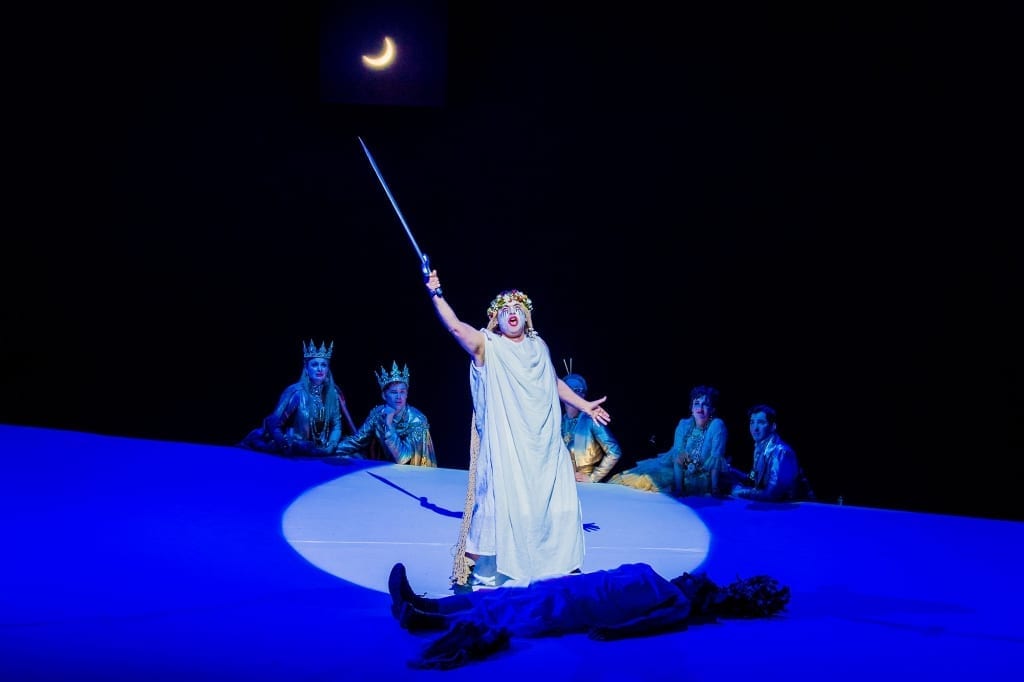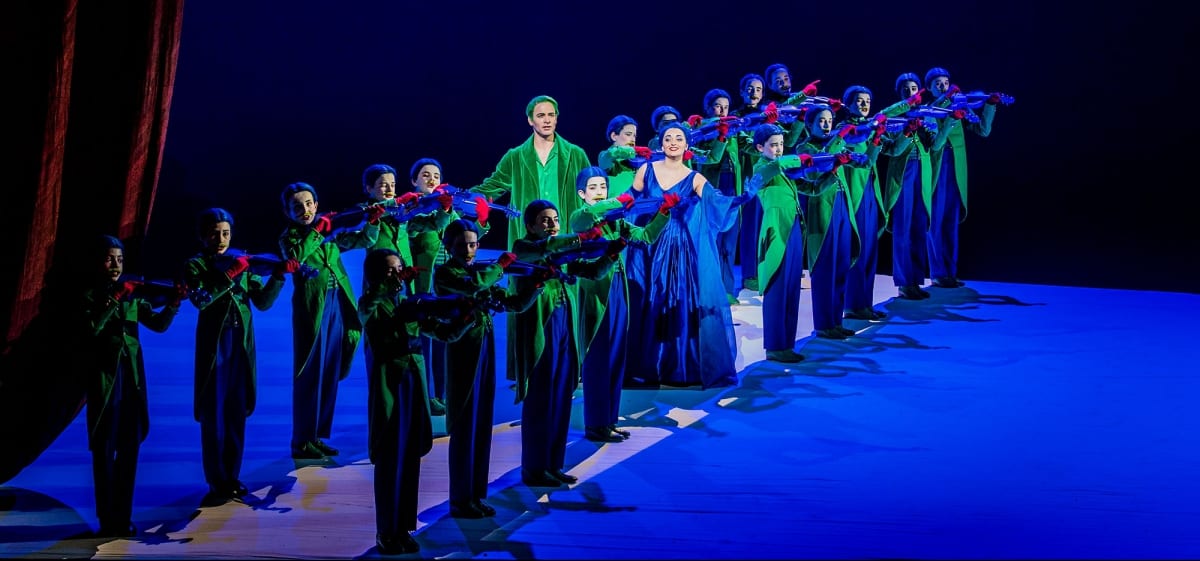I am something of a fan of Benjamin Britten’s opera of A Midsummer Night’s Dream. I like the music, the initial eerie glissandos, some of the brilliant musical cells and the way he and Peter Pears adapted the original text are among its appeals. I have been fortunate to see this opera in several truly brilliant productions in the past that do great justice to the way Britten interprets this tale, its sometimes dark mysticism, its dream psychology and even the sometimes sour magic. Anecdotally, one of the most memorable productions was Peter Hall’s famously gleaming and quite brilliant interpretation which kept being revived at Glyndebourne many years ago. It had a great cast and truly sensitive and idiomatic conducting by Bernard Haitink. In fact, it was filmed so it is actually still available on DVD and definitely worth checking out.
So if I say that I was a bit disappointed in this ENO revival of the opera, I do not mean to put you off. The critics have been very praising, by and large; and perhaps I was just having a somewhat tired evening. The opera is often underrated, possibly because the play is so regularly done; and for me, somehow, in the performance I saw (not the opening night) there was something mildly under-powered. Yet I do believe there are several good reasons to see this ENO revival of Robert Carsen’s approach. The production itself is intelligent and good to look at, bright and colourful, it really is all about our dreams – and beds in which the dreams take place. The storytelling is very direct and clear, even without Shakespeare’s opening act. The hieratic use of the chorus of boys suggests strongly the world of fairies. I liked the primary colours approach. And the performances by a young cast were all excellent.

For me, the most compelling performers were counter-tenor Christopher Ainslie, who is a strongly physical, and lovely-voiced Oberon with a real ability to convey his manipulative and at times angry, authoritarian character while still being charming and attractive enough; and the feisty, lovely Titania of Soraya Mafi. Like David Webb (Lysander), Matthew Durkan (Demetrius), Eleanor Dennis (Helena) and Andri Bjorn Robertsson (Theseus), Mafi is a Harewood artist; and at one level this revival is worth taking in as a fine example of the work that the ENO is doing, despite its well-publicised troubles, in bringing along and developing stars for the future. I found not just the voices but the acting consistently fine and loved the detailed interpretations of both the music and the drama of the roles.
The Puck of Mitos Yerolemou is probably what Carsen conceived and I cannot fault his performance or energy, but for me, it somehow is too earthbound and not magical enough. But that is a quibble; and so is my feeling that Alexander Soddy’s conducting felt to me a bit underpowered the night I saw it. I very much liked all of the mechanicals, with particular praise having to go to Robert Murray’s appealing Flute and Joshua Bloom’s excellent portrayal of Bottom both as a somewhat pompous and self-satisfied ham actor and when transformed into the ass. All praise to designer Michael Levine; and especially for that excellent, mobile ass’s head!
Basically, this is an intelligent and enjoyable production, gives you a good way to get to know the opera if you have never seen it before; and is a worthwhile evening in the theatre.

